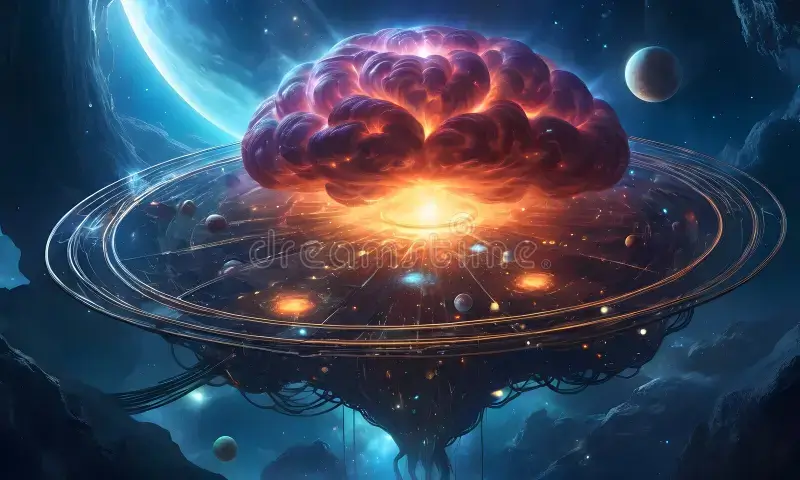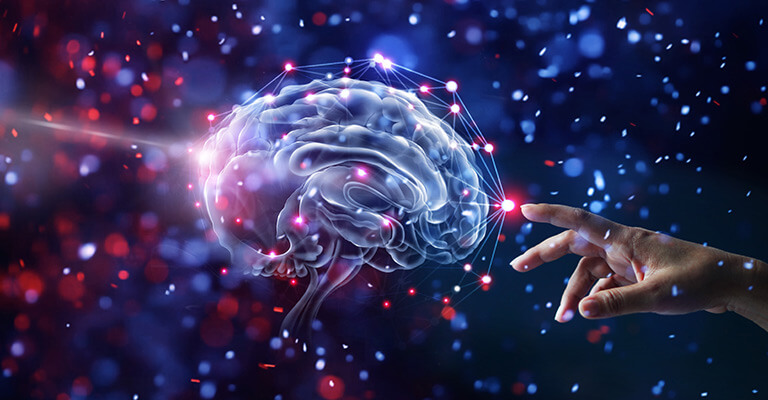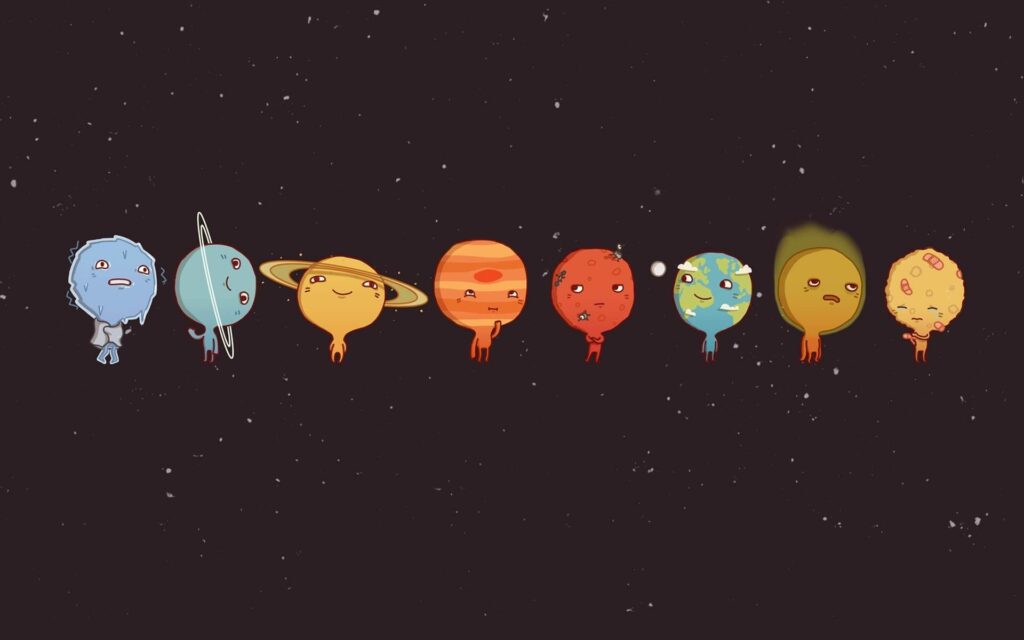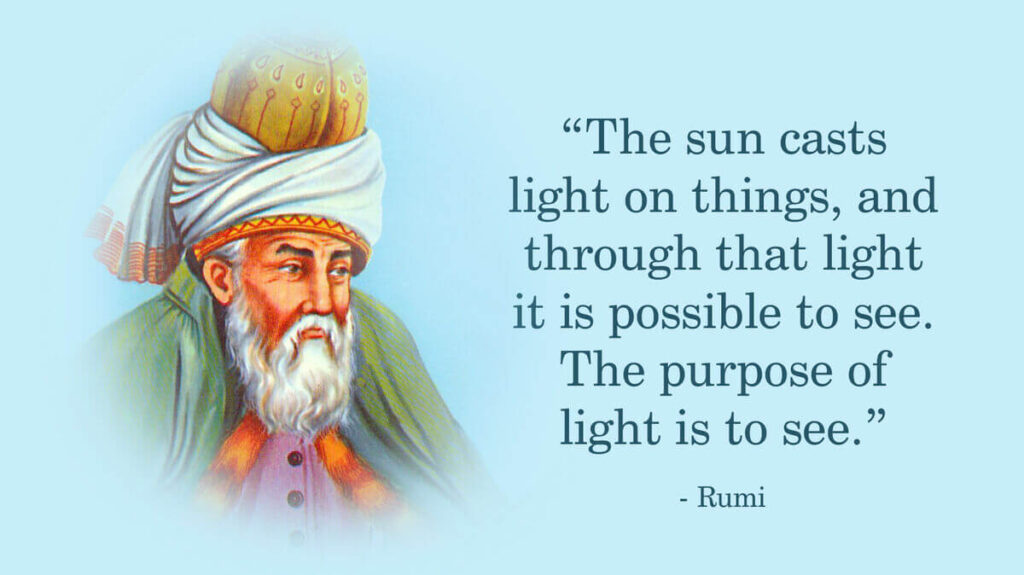
Mapping the Mind
The mind is like a vast land without any true borders. With every thought, dream, or contemplation, we redraw that land on a blank map. The scientists call this neuroplasticity: the brain’s ability to create new connections and remodel itself.
Think of each pathway as a small galaxy of thought. When we combine billions of galaxies of thought, we have created other galaxies of thought inside the space of our mind.
Did you know? If we wanted to count every neuron in the brain one at a time every second, we would take more than 2,700 years!

Quranic Insight: A Universe Inside
The Qur’an gives us insight into a universe within, and it invites us to contemplate our existence:
“And in yourselves, then will you not see?” (Qur’an 51:21)
This passage challenges us to reflect. Just as we use telescopes to discover galaxies in the space around us, we must look inward to discover the galaxies in our own souls.
The Multiple Worlds of Perception
Perception is not reality; it is a painting that our mind has created of reality. Two people may experience the same event, but their perceptions of it could be the inverse of each other. One may perceive the event as tragic, while the other person may perceive it as an opportunity.
Interestingly, this theory has scientific support. According to the Many Worlds Interpretation of quantum physics, every possibility one can think of in the past exists in another universe. Likewise, in our mind, we create “parallel worlds” of meanings, based on the choices or thoughts we choose to dwell on.
Did You Know? The brain can only consciously focus on about 40 pieces of information at once out of the millions it takes in. Everything else “disappears” from our conscious view.
A Case in Psychology: The Broken Cup
A psychologist once told a story regarding two children. Both children had broken a cup. One child cried, considering it a major disaster, while the other laughed and said, “Now I can drink from two pieces!” The event occurred simultaneously. One child had entered into a disaster worldview, while the other child had entered an opportunity worldview.
Read more: Quantum Reality and Our Consciousness
Islamic Framing: Beyond Our Limited Mental Vision
The Qur’an says:
“Perhaps you hate a thing and it is good for you; and perhaps you love a thing and it is bad for you. Allah knows while you know not.” (Qur’an 2: 216)
So, this reference shows us that our perception is restricted within a limited field of view. As our mind constructs a reality based on the restricted perceptions, only Allah knows the unrestricted and complete truth.

A Multiverse of Emotions
Emotions exist in invisible worlds that change our internal climate. Love is spring; anger is fire; grief is winter; and joy is sunlight. Emotions create a new reality. Neuroscience indicates that emotions generate changes in brain activity literally within seconds. A moment of joy can change attention and memory for the better. A moment of anger can blind your judgment.
Did you know? Studies show that individuals who practice gratitude daily exhibit stronger immune functions and lower stress levels. Hence, gratitude, literally, builds healthier worlds in the body.
A Psychology Study: The Angry Man
In one case, a man lost his job and lived in a state of anger. He saw every experience through a lens of bitterness and blame. Another fellow also lost his job, but he moved to a new place of possibility and opportunity. He began his own company. These two men framed their lives through very divergent emotions. Their two lives transformed themselves into two tracks of parallel realities characterized by emotion.
A Prophetic Wisdom: The Real Strength is in Self-Control
Prophet Muhammad ﷺ said:
“The strong person is not the one who overcomes others, but the one who controls himself when they become angry.” (Bukhari, Muslim)
This expression paints the controlling of one emotion as a grounding experience, taken seriously, to take oneself from potentially tragic effects of emotion into a higher reality.
The Universal Link
So, you might be thinking our mind is interestingly connected, but what is it really? Carl Jung, the psychologist, offered the concept of the collective unconscious, which is a reservoir of memories or symbols shared by a culture or even the entirety of humankind. This is what tries to make sense of why we have all dreamt about light, journeys, and death. Recent studies show that mirror neurons in the brain can essentially mimic or mirror others’ emotional experience, which is also why yawns are contagious if you are in a room, and we share sadness – it is contagious.
Did you know? Traumatic experience can alter DNA according to scientists, and the trauma can then be passed on. also, this simply means that fear, resilience, or courage can potentially be passed through our DNA to future generations.
Read more: How AI Renames Human Consciousness
Qur’anic Truth: One Human Family
The Qur’an states:
“Indeed, this community of yours is one community, and I am your Lord, so worship Me.” (Qur’an, 21:92). Thus, one act can positively affect humanity, and the Qur’an describes humanity as stars in a constellation as being part of the divine unity of mankind.
beyond the Veil
Despite our advances, a large part of the mind is wrapped in mystery. Some scientists say 95% of all brain activity is unconscious. We navigate our lives by experiences that we can’t experience.
Near-death experiences can include tunnels of light, feelings of peace, and a sense of expanded consciousness. Science has no way of explaining these experiences, but they indicate the possibility of something greater than our observable reality.
Here’s a fun fact: some neuroscientists say the brain does not actually create consciousness; it receives it like a radio tuning in a frequency. So, if this is true, it means consciousness may continue after you die.

A Reflection from a Sufi
Rumi wrote, “Do not think the soul is in the body. The body is in the soul.” This suggests an even larger reality, that the mind and the body are only small components of a much larger but unseen self.
Conclusion
The mind contains many worlds. Each thought and feeling manifests a different reality inside us. Science demonstrates its power, psychology attributes its depth, and Islam reminds us that there is an unseen only known to Allah. The Qur’an says that both the stars above and the worlds within us are His signs. When we contemplate, we are traveling through these inner galaxies to discover the greatest truth, which is that our soul has always been connected to Allah, the Creator of all worlds.



Leave a Reply